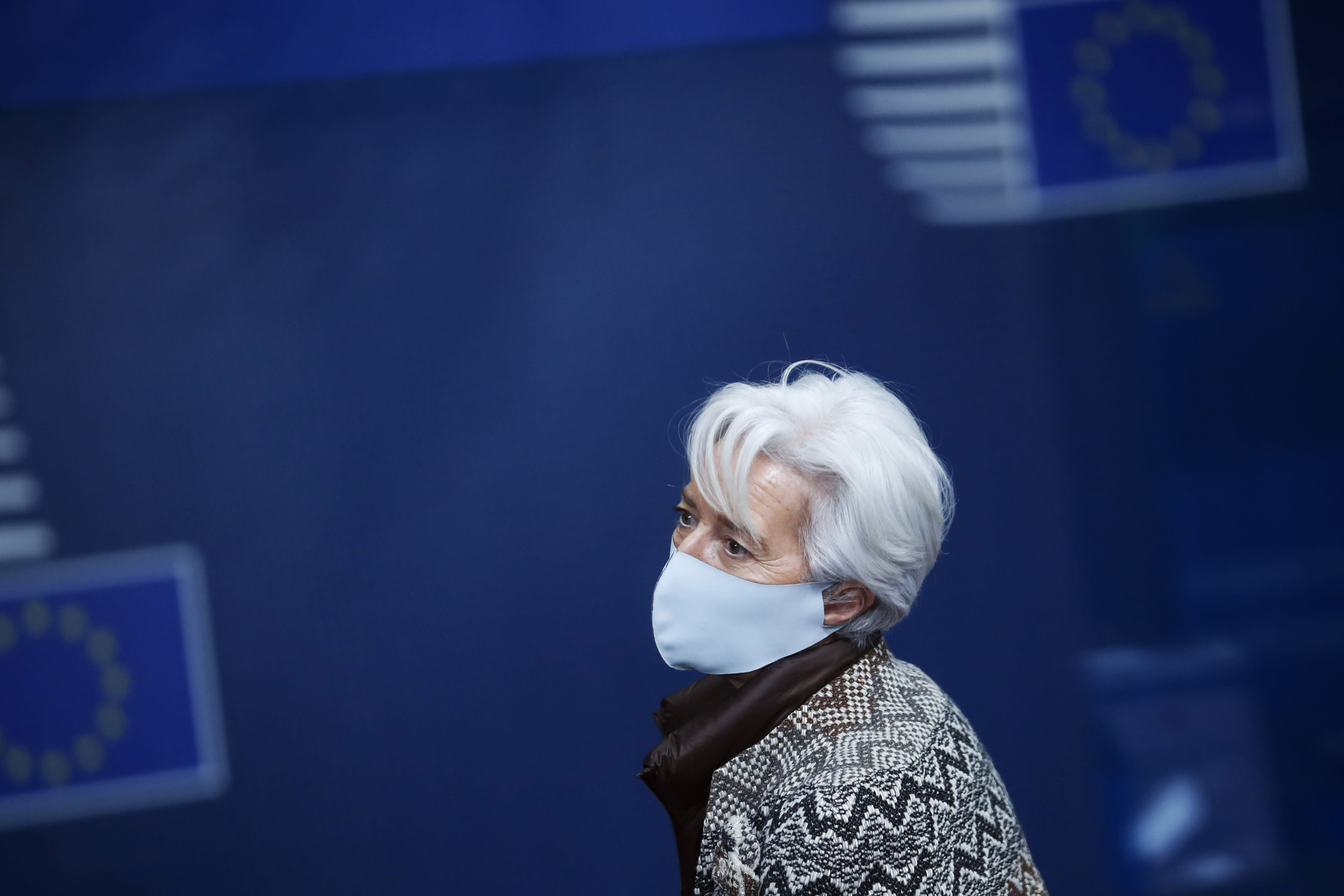
President of the European Central Bank (ECB) Christine Lagarde.
FRANCISCO SECO | AFP | Getty Images
LONDON — The coronavirus pandemic is still posing “serious risks” to the euro zone economy, European Central Bank President Christine Lagarde said Thursday as lockdowns are tightened across the region.
“The start of vaccination campaigns across the euro area is an important milestone in the resolution of the ongoing health crisis. Nonetheless, the pandemic continues to pose serious risks to public health and to the euro area and global economies,” she said during a press conference.
European countries started inoculating their citizens in late December, but the rollout has proven to be challenging. The speed of vaccinations across the region has been patchy, and some nations have complained that there are not enough doses.
“In this environment ample monetary stimulus remains essential,” Lagarde said, while acknowledging that “uncertainty remains high” over how the 19-member region will perform in the coming months.
There are question marks over when governments will reopen their economies and if they will manage to speed up the distribution of Covid-19 jabs.
New lockdowns
The new year began with stricter social restrictions and national lockdowns in many of the 19 countries that share the single currency. Germany this week, for instance, extended a national lockdown until Feb. 14. The Netherlands has announced there will be a curfew starting next week. And France chose to intensify its curfew hours earlier this month, while Portugal will close schools from Friday.
There have been more than 16 million Covid-19 infections in the EU and more than 400,000 deaths so far, according to the European Centre for Disease Prevention and Control.
European leaders are hoping to accelerate vaccinations in the coming months as a way to contain the spread of the virus and its economic impact. The European Commission, the executive arm of the EU, has asked member states to vaccinate at least 70% of their adult populations by the summer.
Stands ready to act
Amid the economic uncertainty, the ECB said it’s ready to update its policies whenever necessary. “We continue to stand ready to adjust all of our instruments, as appropriate, to ensure that inflation moves towards our aim in a sustained manner,” Lagarde said Thursday.
The ECB’s main policy target is to achieve an inflation rate close to, but below, 2%. However, officials have already said they do not expect that to be feasible in the coming months.
Meanwhile, at its policy meeting on Thursday, the ECB’s Governing Council kept interest rates and it huge stimulus program unchanged. The ECB’s main refinancing operations, marginal lending facility and deposit facility will remain at 0.00%, 0.25% and -0.50%, respectively.
The ECB stepped up its massive stimulus program in December to support the economic recovery in the region. Its Pandemic Emergency Purchase Programme was extended to March 2022, totaling 1.85 trillion euros ($2.25 trillion) in bond purchases. This allows euro zone governments to get cheaper rates when borrowing from public markets.
“Our policy measures, together with the measures adopted by national governments and other European institutions, remain essential to support bank lending conditions and access to financing, in particular for those most affected by the pandemic,” Lagarde said.
Despite the troubled situation, the ECB has stuck with its growth forecasts for this year. Speaking at an event, earlier this month, central bank President Christine Lagarde said: “I think our last projections in December are still very clearly plausible.” In December, the bank estimated a 3.9% GDP rate for 2021, and 2.1% for 2022.
Dovish for a ‘long time’
“As the vaccination program gathers pace across the euro zone, the economy should begin to recover from the Spring,” Joseph Little, global chief strategist at HSBC Global Asset Management, said in a research note after the announcement.
“Despite the prospect of a re-invigorated recovery, the ECB is likely to remain dovish for a long time to come, as the economy is around 7% smaller than a year ago,” he added.
Many economists expect the ECB to keep its policy unchanged for the foreseeable future, even if lockdowns were to continue beyond March.
“Even if some of these downside risks materialise, the policy implications would be limited,” Andrew Kenningham, chief Europe economist at Capital Economics, said in an email, “particularly as the Bank appears to be resigned to missing its key policy target for a long time to come.”




